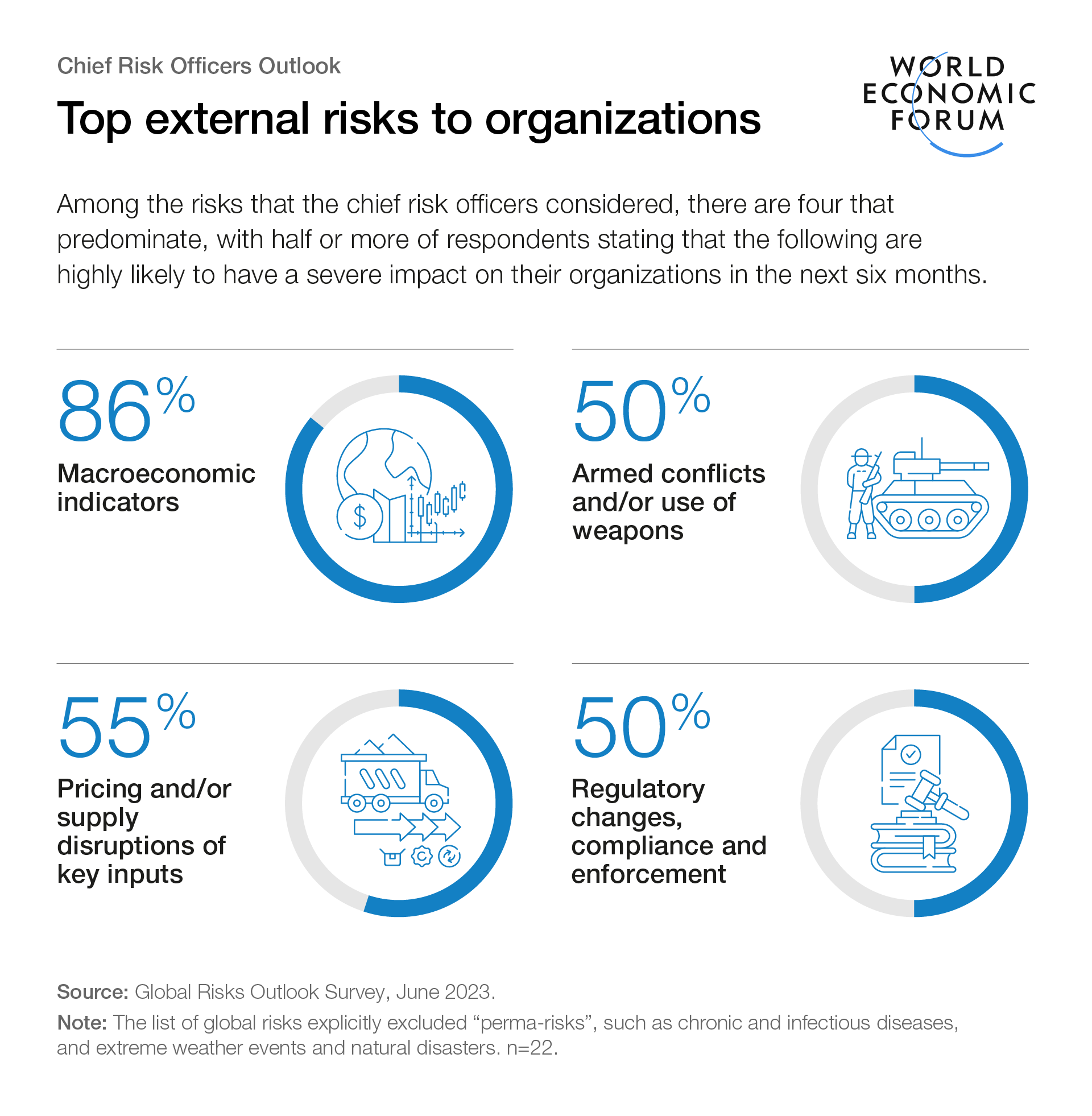Geopolitical and geoeconomic relations between major economies are set to experience significant volatility over the next six months, according to the World Economic Forum’s Chief Risk Officers community
New survey suggests 85% of CROs expect continued shocks in economic and financial conditions
Armed conflicts and regulatory changes are also cited as potential threats to organizations
Over 75% of CROs believe the use of AI technologies poses reputational risks to their organisation
With the world facing growing economic instability and political tensions, volatility in geoeconomic and geopolitical relations between major economies are likely to result in global upheavals over the next six months, according to a new survey of the World Economic Forum’s Chief Risks Officers (CRO) community.
The community comprises 40 risk professionals from a wide range of multinational companies, covering technology, financial services, healthcare, professional services and industrial manufacturing. Respondents to the survey identified macroeconomic indicators, pricing and supply disruptions of key raw materials, armed conflicts and regulatory changes as top concerns for organizations.
“CROs are facing a multitude of pressing concerns as they look to the remainder of 2023,” said Ellissa Cavaciuti-Wishart, Head of Global Risks Initiative, World Economic Forum. “Whilst continuing to grapple with rising costs and supply disruptions, organizations are increasingly faced with a number of ethical and societal risks, which are far more complex to navigate than regulatory compliance alone.”
More than 85% of CROs expect some level of continued volatility and economic and financial conditions within and across major economies.
Recent months have also seen a sharp increase in discussion of technology-related risks. CROs broadly agree that risk management is not keeping up with the rapid development and deployment of AI technologies, with 75% saying the use of AI technologies poses reputational risks to their organizations and 90% calling for an acceleration of regulation. Almost half of respondents agree with slowing or pausing development of these technologies until the associated risks are better understood.
www.weforum.org
